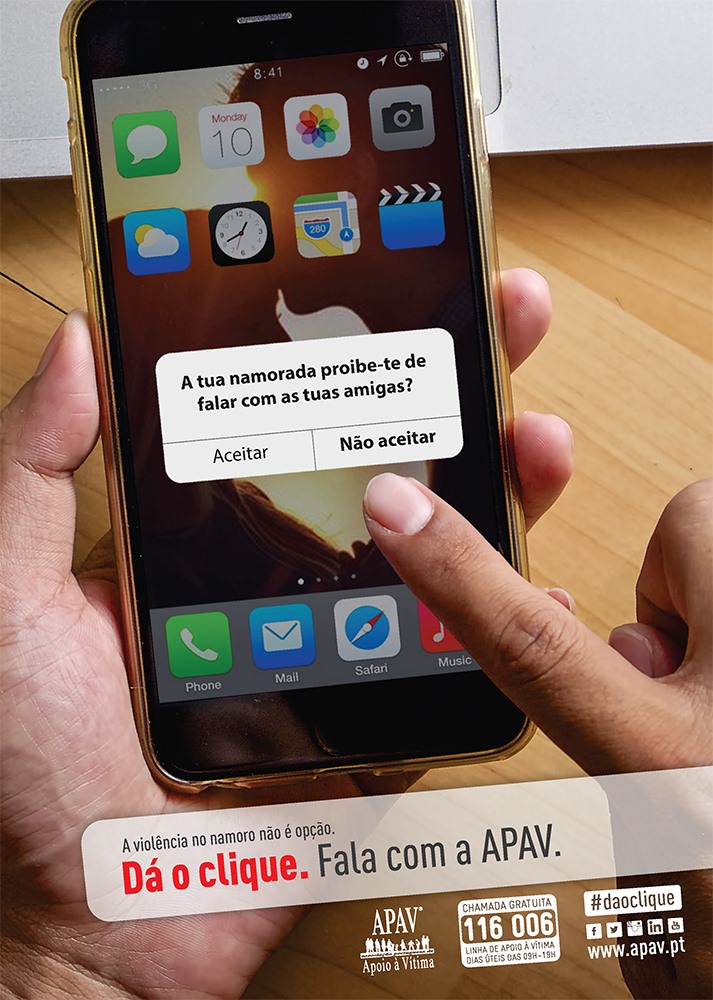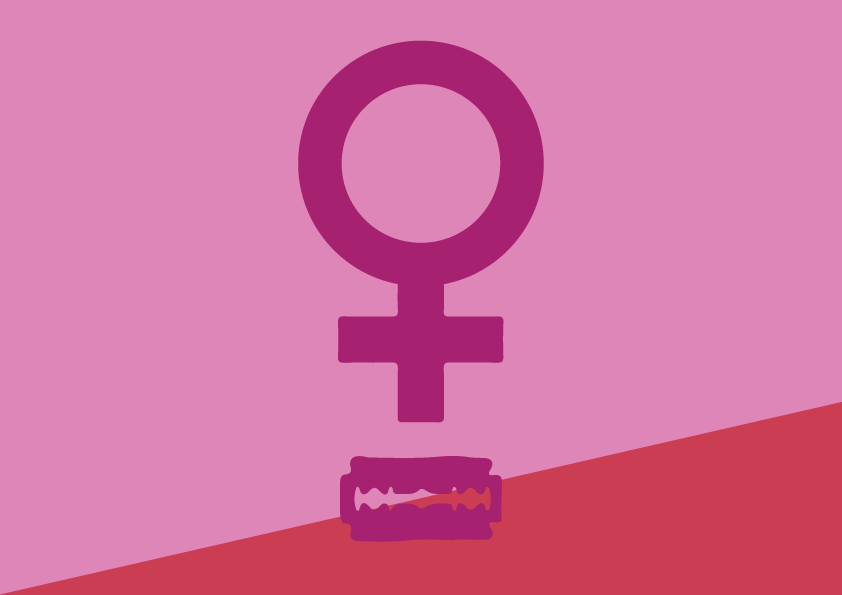
"You won't believe it, but it exists"
Victim Support Europe launches today the campaign "You won't believe it, but it exists" and APAV joins its launch. Conducted with 14 partners across 13 different countries, the campaign intends to inform general public of the existence of victim support services and to encourage victims to reach out these services.
The campaign will deliver tailored information about the support services to the estimated more than 9 million of victims of crimes in the 13 countries. Animation speed-paintings, videos and other information materials (billboards, posters, brochures, stickers, etc.) will be rolled out in social media and offline from 22 of February till the end of 2021 under the hashtag #itexists.
February 14th | Valentine’s Day



On Valentine’s Day which is celebrated this Sunday, February 14, The Portuguese Victim Support Association resume the “Dá o clique” Campaign, which aims to expose sensitive young people to dating violence.
Violence in intimate relationships isn’t an exclusive phenomen of relations between adults and national and international studies can be found that reveal this is also one problem in relationships between young people.
A study carried out in Portugal, with 4500 young people aged between 13 and 29 years old, found that 1 in 4 young people reported having been victims of some type of abusive behavior by their boyfriend / girlfriend.
APAV works with issues related to dating violence through direct support, awareness and training actions and comunicacions that aims to reach where young people are - The Internet.
Police authorities, schools, health centers and/or hospitals and support structures, in which APAV is included, are entities that can support and inform the victims, your families and friends.
As an institution that supports victims off all types of crime, your families and friends, APAV is available to support through the Victim Support Line - 116 006 (free call), Messenger (Facebook), Videocall (Skype:apav_lav) and through a national network of Victim Support Offices.
Presentation | Data Detox x Youth
Data Detox x Youth,is now available, an activity kit to help young people control their technology. This is an interactive tool that aims to encourage the young people to think about the different aspects of their digital lives, from their Social Media Profiles to Passwords, with simple activities for reflection and fun.
Young people, and society in general, are now more dependent on technology than ever before. It becomes increasingly important to question the apps and platforms we use every day to socialize, exercise, learn and share.
Data Detox x Youth encourages young people to ask questions such as: "Who has access to my data?", "Do I have control over it?", "What does my online profile look like?"
This kit is divided into four sections -Digital Privacy, Digital Security, Digital Welfare and Disinformation - and its main recipients are young people who already have their own devices, but can be used by people of all ages.
The Data Detox Kit, created by Tactical Tech, is free and will be available in digital and physical formats. It is currently available in English, Spanish, Italian, Portuguese and German.
APAV releases APAV Statistics | Safe Internet Line 2020 and Data Detox x Youth Kit
The Portuguese Association for Victim Support presents today, marking the Safer Internet Day, APAV Statistics | Internet Safe Line 2020, the result of the analysis of this Line that provides support in both aspects of reporting illegal content on the Internet and in support of issues related to the use of technologies and victims of cybercrime.
In 2020, the year in which we were all, in some way, impacted by the COVID-19 pandemic,The Internet Safe Line recorded a total of 1,164 processes in two areas: customer service (helpline) and complaint (hotline). This document presents specific statistics on registered care and support processes, crimes and other forms of violence, as well as the profile of the victim of crime.
The Internet Safe Line, managed by APAV since January 2019, also covers awareness raising.Young people, and society at large, are now more dependent on technology than ever before. It becomes increasingly important to question the apps and platforms we use every day to socialize, exercise, learn and share.
The Internet Safe Line is available at 800 21 90 90 (working days between 9 am and 9 pm) or by e-mail This email address is being protected from spambots. You need JavaScript enabled to view it.. Support is confidential and free.
February 6 | International Day of Zero Tolerance Against Female Genital Mutilation

Today, February 6, marks the International Day of Zero Tolerance Against Female Genital Mutilation. Female Genital Mutilation constitutes a serious violation of Human Rights and, particulary, a way of violence against womans.
It is recognized as a global phenomenon. The latest data estimate that in Europe there are about 600,000 women and girls living with the physical and psychological consequences of FGM/C and that around 180,000 girls in 13 countries are at risk of being subjected to FGM/C.
FGM/C comprises all procedures that involve the total or partial removal of the external female genital organs, or that cause injuries to the female genital organs for non-medical reasons.
According to WHO, the reasons why the FGM/C is praticed include a mixutre of socio-cultural fatores that characterize families and comunities. Not found in any religion foundation for FGM/C, being the mainenance of the pratice relalated to wrong beliefs about a girl’s development and her preparation to be woman; about sexuality, femininity, fidelity and / or hygiene.
APAV, through Support Unit for Migrant Victims and Discrimination (UAVMD), provides legal, psychological and social support services specialized services to migrant people who are victims of crime and / or victims of specific forms of violence, namely FGM/C.
Victim Support Line | 116 006
UAVMD | 21 358 79 14 | This email address is being protected from spambots. You need JavaScript enabled to view it.









